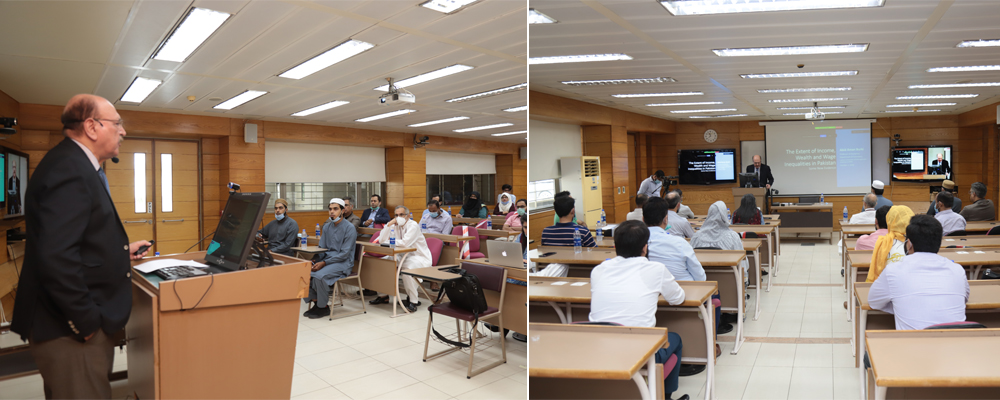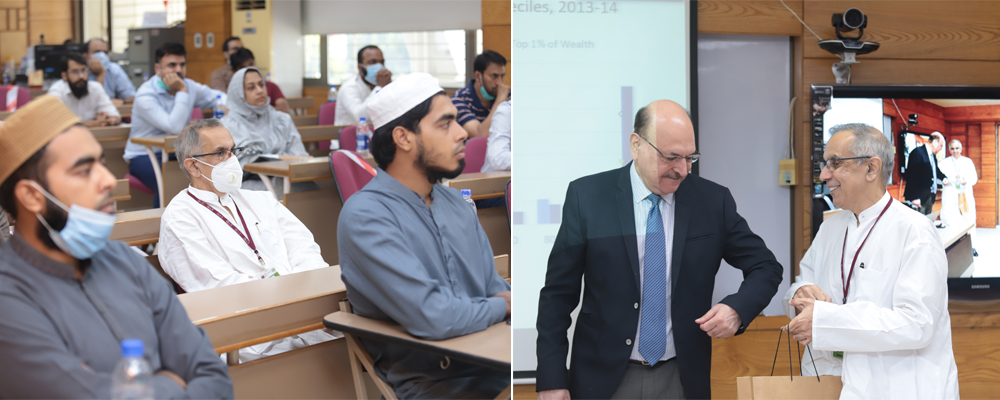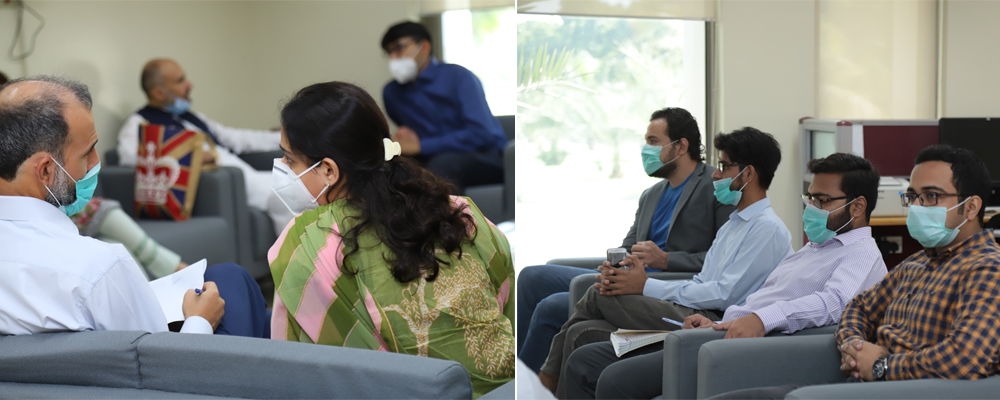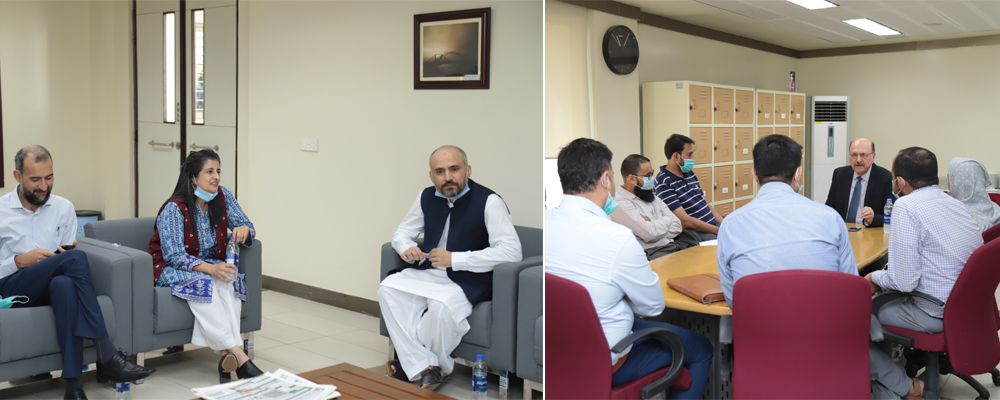Distinguished Speaker Seminar Series
The first of the Distinguished Speaker Seminar Series was held on Friday 2nd October by the CBER in collaboration with the Economics Department. The distinguished guest was Dr. Abid Aman Burki who is an economist, policy analyst and Professor of Economics at Lahore University of Management Sciences. The event was attended by faculty, Ms and PhD students and other members from the academia. It was also broadcasted live on Facebook, YouTube and Zoom.

The discourse focused on the research work done by Dr. Burki on "The Extent of Income, Wage and Wealth Inequalities in Pakistan". Dr. Burki shared some very thought-provoking findings of his research with the audience. The discussion focused exclusively on income inequality in Pakistan, interaction between income and wealth inequality, wage inequality and wage inequality and gender disparity.

He highlighted that income and wealth inequality is widespread both in developed and developing countries. He referred to the work of Banerjee and Piketty (2005) who had explored how the share of top 1 percent and top 5 percent of the population has moved from 1921-2000 in the context of India. The income equality followed a U- shaped pattern first declining and then rising. Dr. Burki pointed out that income inequality does not follow a deterministic process. Rather there exist powerful forces that push it in the direction of rising or shrinking inequality. Furthermore, income and wealth inequality has increased with globalization and institutions such as the WTO have played an important role in this phenomenon through their activities aimed at liberalization of trade and investment.

Governments over time have focused greatly on poverty alleviation but inequality generally has been an ignored subject. Economic reforms and policies have worked to increase income per capita but inequality has generally remained unchanged. The growth incidence curves for Pakistan show that from 2001-2016 a consistent decline has been observed in per capita income growth of households that are below the 65th percentile. Another revelation was regarding the growth in income by percentiles from 2001-2016. The top 10 percent of the population captured 24 percent of income growth whereas the bottom 50 percent only secured 32 percent of income growth so relatively the share going to the top 10 percent has been much higher. Moreover, Dr Burkis's research discovered that there is high correlation between income and wealth. The top 10 percent of the households own 60 percent of wealth whereas 40 percent of the population has no wealth. The highest mean wealth was found in KP and Punjab. Dr. Burki emphasized that lowering inequality would decrease poverty which is all the more reason that government policies and programs should focus on the reduction of inequality.

All in all, it was an intellectually stimulating event that engaged the participants in a fruitful academic discussion. The participants were given the opportunity to discuss their concerns with Dr. Burki and questions were taken from online participants as well.